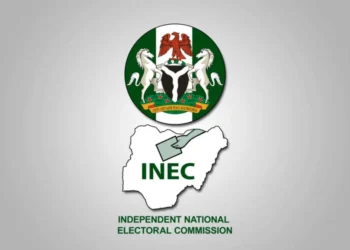The IMANI Centre for Policy and Education, along with Professor Kwesi Aning, has filed a writ in the Supreme Court of Ghana challenging the Attorney General and the Ministry of Justice over the appointments of heads of various uniformed security agencies across the country.
The plaintiffs argue that the President of Ghana lacks the authority to terminate or remove these officeholders unless only upon proven stated misconduct or misbehaviour established against these officeholders, or upon retirement or resignation or death or incapacity to perform the functions of the office because of the infirmity of body and mind.
The offices in question include the Chief Fire Officer of the Fire Service, Inspector General of Police, Director General of Prisons Service, and Comptroller General of Immigration Service
In a writ filed in association with the Director of Academic Affairs and Research at the Kofi Annan International Peacekeeping Training Centre, Professor Kwesi Aning, the plaintiffs are asking the apex Court for a true and proper interpretation of the letter and spirit of Articles 200, 202(1), 202(2), 202(3), 205, 207(1), 207(2), 207(3), 190(1), 191,196, 199, and 269 of the 1992 Constitution of Ghana.
“The President of the Republic of Ghana upon assumption of Office does not have the power to make a fresh appointment to the office of the Chief Fire Officer of the Fire Service; Inspector General of Police; Director General of Prisons Service and Comptroller General of the Immigration Service unless the immediate holder of the office is deceased.”
IMANI Centre for Policy and Education, along with Professor Kwesi Aning
Again, the two seek a declaration and relief that appointing the heads of these uniformed security services by a new president who has been voted into power and sworn into office is unconstitutional.
Providing more details to back their case, the two argued that there are concerning trends where new governments compel the termination of the appointment of these heads while disregarding their constitutional rights.
“In some cases, these removals occur before the individual occupants of the office reach the statutory retirement age. For instance, in 2017, the then Director-General of the Prisons Service, Mr. Emmanuel Yao Adzator was asked to proceed on leave at the age of 54 and subsequently another was appointed in his stead.”
IMANI Centre for Policy and Education, along with Professor Kwesi Aning
Moreover, the Supreme Court of Ghana has ruled on a case involving the Auditor General, specifically the case of Daniel Domelevo. In May 2023, the Supreme Court declared President Nana Akufo-Addo’s directive for Domelevo’s forced leave unconstitutional.
This decision followed a two-year hearing, during which the Centre for Democratic Development and eight other Civil Society Organizations argued that the President’s action was an affront to the independence of the Auditor General’s office.
The President had directed Domelevo to take 169 working days of accumulated leave in 2020, a move that was challenged by the civil society organizations. The Supreme Court upheld the plea of the applicants, ruling that the President’s directive was unconstitutional and null and void.
Appointment and Removal of Officeholders
The constitutional basis for the appointment and removal of office holders in Ghana, including heads of uniformed security agencies, is rooted in the 1992 Constitution of the Republic of Ghana. According to the Constitution, the President of Ghana has the power to appoint and remove certain public office holders, including those in uniformed security agencies, subject to the provisions of the Constitution and relevant laws. This power is exercised in consultation with the Council of State for certain key public offices, as recommended by the Constitutional Commission for a Constitution for the Establishment of a Transitional (Interim) National Government for Ghana in 1978.
Public officers whose offices are not specified in the Constitution, continue to hold office on the assumption of office by the person elected as President, subject to the provisions of the Constitution and of the relevant law applicable to that public officer. This provision implies that any public officer not listed to cease holding office on the assumption of a new President will continue to hold office until their constitutionally mandated retirement age is prescribed by law.
In the context of the appointment and removal of office holders, the Constitution emphasizes the importance of the President acting in consultation with the Council of State for certain key positions. This consultation process is designed to ensure that appointments are made in a manner that upholds the integrity and independence of the public services.
This case highlights the importance of the judiciary in safeguarding the independence of constitutional offices and ensuring that they can discharge their lawful mandates effectively without fear or favour. The decision underscores the role of the Supreme Court in interpreting the Constitution and holding the Executive and Legislative arms of government accountable, especially in matters of constitutional jurisprudence.
READ ALSO: Looming Crisis in the Energy Sector



















